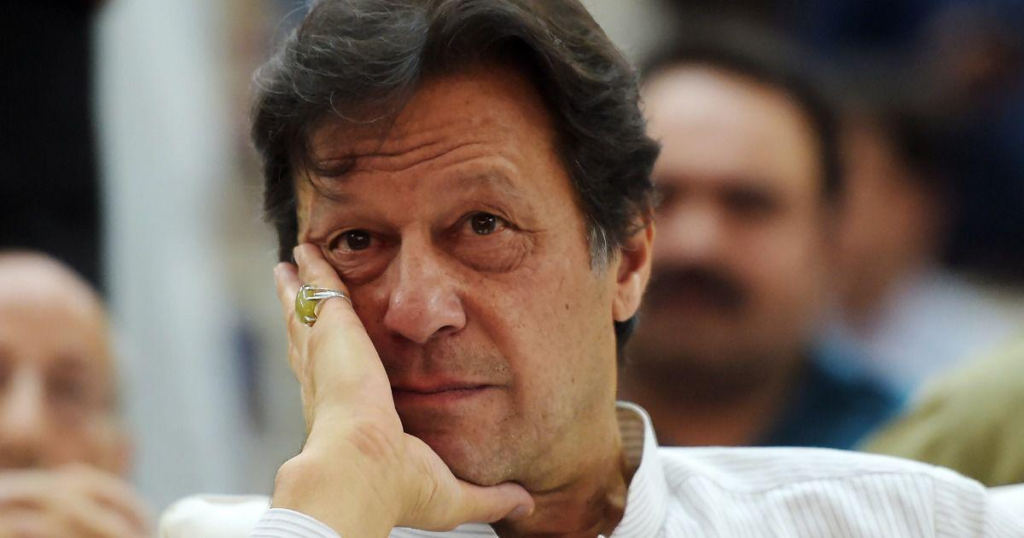China has stopped the funding of CPEC projects due to rampant corruption in the use of funds. Since the Imran Khan government came to power, various differences have emerged between both countries over the usefulness of the project. China is hosting Belt and Road Forum in Beijing from 25 to 27 April and head of state of 37 nationalities have confirmed their presence. The Imran Khan and Pakistani Army (which is a more important players in the matter) have grown suspicious of the usefulness of the project.
#Pakistan #GOC #SouthernComd& #12Corps #LtGenAamerRiaz on #CPEC.Will only repair&feed unless proper agreements made.I'm Paki 1st.Very candid pic.twitter.com/Vk2AdSEs5F
— 卫纳夜格.巴特 Col Vinayak Bhat (Retd) @Raj47 (@rajfortyseven) April 22, 2017
China did not clear Pakistan’s National Highway Authority cheque worth 3 billion dollars which has the put agency in financial crisis. A few weeks ago, a controversy erupted when it became public that Pakistan has diverted 2,400 crore rupees (171.6 billion dollars) to fund projects identified by local legislators. Imran Khan’s government wants to please the powerful legislators of the country to save his government. “The government committed theft by spending Rs 2,400 crore out of Rs 2,700 crore meant for BRI on other development projects,” said opposition leader Maulana Fazl-ur-Rehman.
The pace of construction has slowed down considerably. In 2016-17, 121 km of cutting and grading has been completed and it slowed down to 53 km in 2017-18. Therefore the pace of work halved in just one year. The Print has accessed the satellite imagery of the project where it is evident that the project has slowed down.
https://theprint.in/diplomacy/china-pakistan-corridor-slows-down-as-beijing-stops-funding-it-over-corruption-allegations/224941/
Before this, a fight between Lahore and Karachi had erupted on the allocation of funds for the China Pakistan Economic Corridor (CPEC) projects. Before the election of Imran Khan, the Lahore-based Punjabi business lobby was stronger because the former Prime Minister Nawaz Sharif represented the interests of Lahore’s business elites. In fact, his family itself is part of the Lahore business lobby. However, the election of Imran Khan on the highest decision-making chair has changed the equations, Karachi’s business lobby supported Khan in the elections and now it is asserting itself in policymaking.
The Sharif government awarded many CPEC contracts to Lahore’s businessmen who were operating in a joint venture with Chinese companies. With the election of Imran Khan, Karachi’s lobby wants their share in the pie. Karachi-based businessman, Abdul Razak Dawood who is also an Advisor for Commerce, Textile, Industry & Production, and Investment to the Prime Minister had raised question on CPEC deal and allocation of projects. “The previous government did a bad job negotiating with China on CPEC – they didn’t do their homework correctly and didn’t negotiate correctly, so they gave away a lot. Chinese companies received tax breaks, many breaks and have an undue advantage in Pakistan; this is one of the things we’re looking at, because it’s not fair that Pakistan companies should be disadvantaged,” said Dawood in an interview. His criticism of the CPRC deal and project allocation is significant because he is considered to be very influential in the present government. In fact, Pakistan’s former finance minister, Asad Umar is the previous CEO of Engro Corp which is owned by Dawood’s family.
Imran Khan included many new sectors such as agriculture as part of the CPEC project. China is very concerned about the security and success of CPEC. Many countries like Malaysia, Sri Lanka either scrapped OBOR projects or renegotiating the deal. China wants to present CPEC as a poster boy and therefore the project’s success is very necessary. The security of CPEC and Chinese workers was the reason behind China’s decision to veto the UN’s resolution to designate Masood Azhar, the mastermind of the Pulwama attack and the 2001 Parliament attack as a global terrorist.
